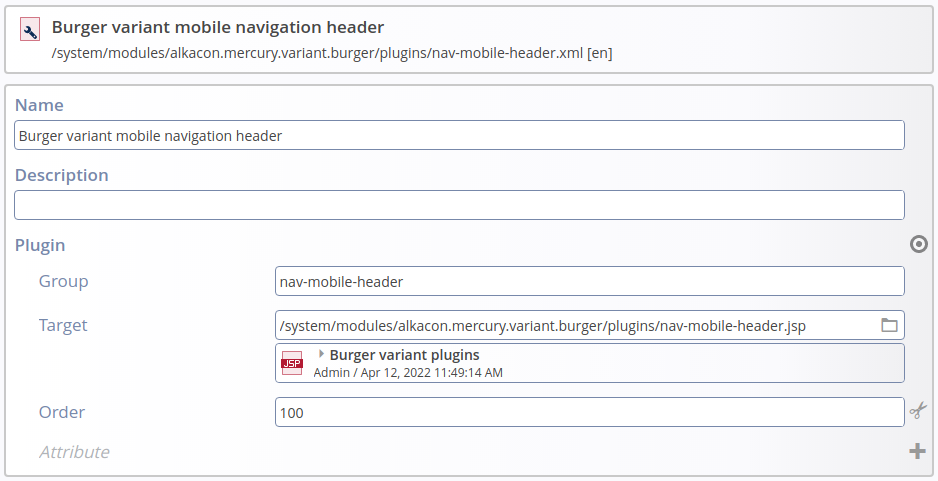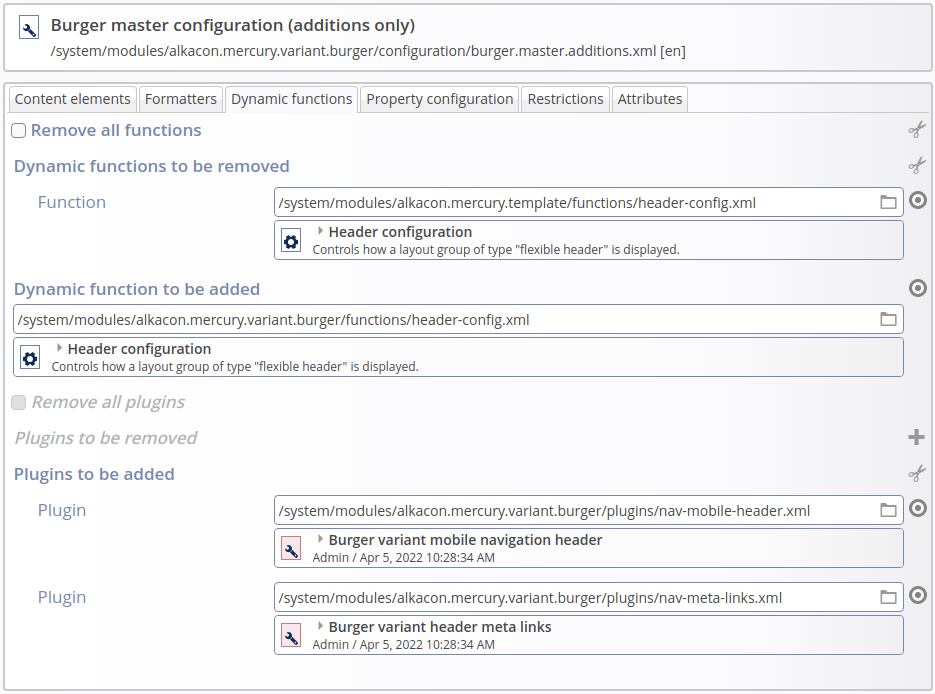The group names such as jsp, css, js-defer, and js-async are template-specific. A plugin developer has to know which plugin groups are supported by a template and which specific plugin group to use in order to get a plugin functionality working.
Also, plugins must coordinate their ordering numbers themselves. Choose the order of including plugin resources, JavaScript resources for example, carefully.
For frontend functionality that is relevant for a whole site, the plugin EL expressions can be seen as a more flexible replacement for the former Head includes feature.

